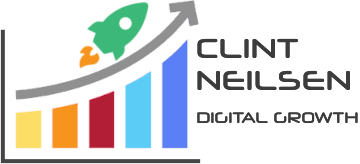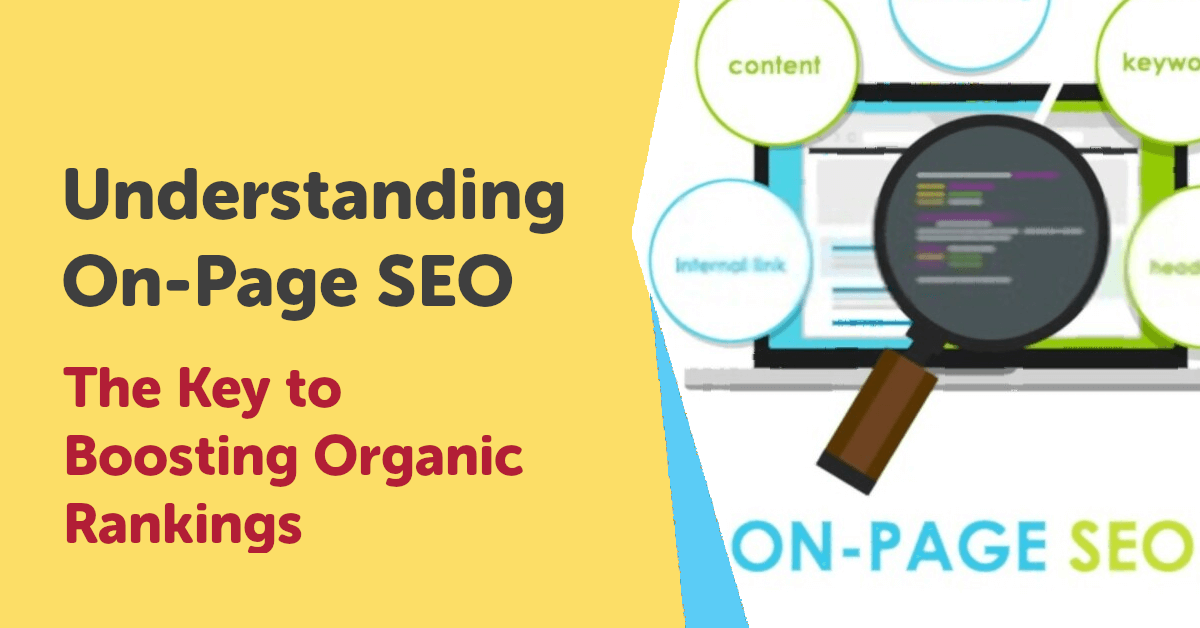
If you’ve been struggling to crack the code of digital marketing and achieve higher organic rankings on search engines, it’s time to dive into the world of On-page SEO. As a seasoned digital marketer and developer, I’ve witnessed firsthand the power of on-page optimization in catapulting businesses to the top of search engine result pages. In this blog post, I’ll break down the importance of on-page SEO and guide you through the different elements that can help you boost your organic rankings. Let’s get started!
The Power of On-Page SEO
Picture this: You have an amazing website that showcases your services, but it’s not getting the visibility it deserves. That’s where on-page SEO comes into play. On-page SEO refers to the optimization techniques you implement directly on your web pages to improve their search engine rankings. It’s all about optimizing your content and code to make it more relevant and appealing to search engines like Google.
On-page SEO is like a secret language between your website and search engines. It’s the art of speaking their algorithmic dialect and conveying your website’s relevance and authority effectively. By optimizing your content, meta tags, URLs, and internal linking, you send signals to search engines that your website is a valuable resource for users searching for services like yours. It’s a process of aligning your website’s DNA with the preferences and requirements of search engine algorithms, ultimately improving your chances of ranking higher in search results. Without on-page optimization, your website may struggle to stand out among competitors, no matter how remarkable your services are. So, it’s time to unlock the power of on-page SEO and give your website the visibility it truly deserves.
Become an On-Page SEO Genius
Before I start with the key elements to understand On-Page SEO, here is a quick video about the same uploaded by SEMRUSH
The Elements of On-Page Optimization
Keyword Research and Optimization
Keywords are the foundation of on-page SEO. They are the words and phrases that people use when searching for products or services online. Conducting thorough keyword research allows you to identify the terms your target audience is using and strategically incorporate them into your content. By optimizing your web pages with relevant keywords, you increase the chances of ranking higher in search results.
Keywords are the backbone of on-page SEO, acting as the bridge between what your potential customers are searching for and the content you provide. They hold the key to unlocking greater visibility and attracting organic traffic to your website. Conducting thorough keyword research is a vital step in understanding the language of your target audience and aligning your content with their search intent.
When conducting keyword research, it’s crucial to dive deep into the minds of your potential customers. Put yourself in their shoes and think about the terms and phrases they would use when looking for services like yours. Consider the specific pain points they’re trying to address, the solutions they seek, and the benefits they desire. This insight will guide you in identifying the most relevant and valuable keywords for your business.
Once you have a list of targeted keywords, strategically incorporate them into your content. However, it’s important to maintain a natural and organic flow. Avoid keyword stuffing, which refers to the excessive use of keywords in an attempt to manipulate search rankings. Instead, focus on creating high-quality, informative, and engaging content that naturally incorporates your keywords in a way that provides value to your audience.
By optimizing your web pages with relevant keywords, you send strong signals to search engines about the relevance and value of your content. This increases the likelihood of ranking higher in search results and attracting qualified organic traffic to your website. Remember, on-page SEO is not just about cramming keywords into your content but rather understanding your audience’s search behaviour and crafting valuable content that addresses their needs.
Compelling Title Tags and Meta Descriptions
Title tags and meta descriptions play a crucial role in attracting both search engines and potential visitors. A well-crafted title tag serves as a concise and compelling headline for your webpage, while the meta description provides a brief summary of the page’s content. By optimizing these elements with relevant keywords and persuasive language, you can entice users to click through to your website.
Title tags and meta descriptions are like the digital storefront of your web pages. They provide a glimpse into what your content has to offer and can significantly impact the click-through rates from search engine result pages (SERPs). When crafting your title tags, it’s essential to include targeted keywords that accurately represent the content of the page. This helps search engines understand the relevance of your webpage and improves its chances of appearing in relevant search queries. Additionally, incorporating persuasive language and a compelling call-to-action in your title tags can entice users to click on your link, driving more traffic to your site.
Meta descriptions, on the other hand, provide an opportunity to give a concise and engaging summary of your webpage’s content. While meta descriptions don’t directly impact search engine rankings, they play a crucial role in attracting potential visitors. By carefully crafting meta descriptions that highlight the unique value and benefits of your page, you can grab the attention of users and entice them to click through to your website. Remember to keep your meta descriptions within the recommended character limit (usually around 150-160 characters) and make them informative, persuasive, and relevant to the searcher’s intent.
Optimizing your title tags and meta descriptions is a fundamental aspect of on-page SEO. These elements serve as your website’s first impression to both search engines and potential visitors. By strategically incorporating relevant keywords, persuasive language, and compelling calls to action, you can enhance the visibility of your web pages in search results and drive more qualified traffic to your site. In the next section, we’ll explore additional on-page optimization techniques that will further boost your organic rankings.
Engaging and Optimized Content
Content is king, and it’s a fundamental component of on-page SEO. Creating high-quality, engaging, and relevant content not only keeps your audience hooked but also signals to search engines that your website provides value. Incorporate your target keywords naturally throughout your content, ensuring it flows smoothly and enhances the user experience.
When it comes to keyword usage in your content, striking the right balance is crucial. It’s recommended to maintain a keyword density of around 1% to 1.5% within your text. This means that your target keywords should appear naturally and organically throughout your content, without feeling forced or spammy. Keyword stuffing, or overusing keywords in an unnatural manner, can lead to negative consequences, such as keyword cannibalization or a poor user experience. Instead, focus on creating informative, valuable content that addresses the needs and interests of your target audience while incorporating your keywords strategically. By maintaining an optimal keyword density, you can optimize your content for search engines while ensuring a seamless and engaging reading experience for your visitors.
URL Structure and Internal Linking
The structure of your website’s URLs and internal linking play a role in on-page optimization. Ensure your URLs are concise, descriptive, and include relevant keywords when possible. Internal linking, or linking between pages within your website, helps search engines understand the structure and hierarchy of your content. It also encourages visitors to explore more of your website, improving their overall experience.
Take Your Organic Rankings to New Heights
Boosting your organic rankings requires a multifaceted approach, and on-page SEO is a critical piece of the puzzle. By understanding and implementing the elements of on-page optimization, you can enhance your website’s visibility, attract more organic traffic, and ultimately scale your business online.
Overall, the journey to mastering on-page SEO may seem daunting at first, but with the right knowledge and tools, you can conquer the challenges and reap the rewards. Remember, implementing on-page SEO techniques is an ongoing process that requires continuous monitoring, testing, and refinement. Stay persistent and adapt.


